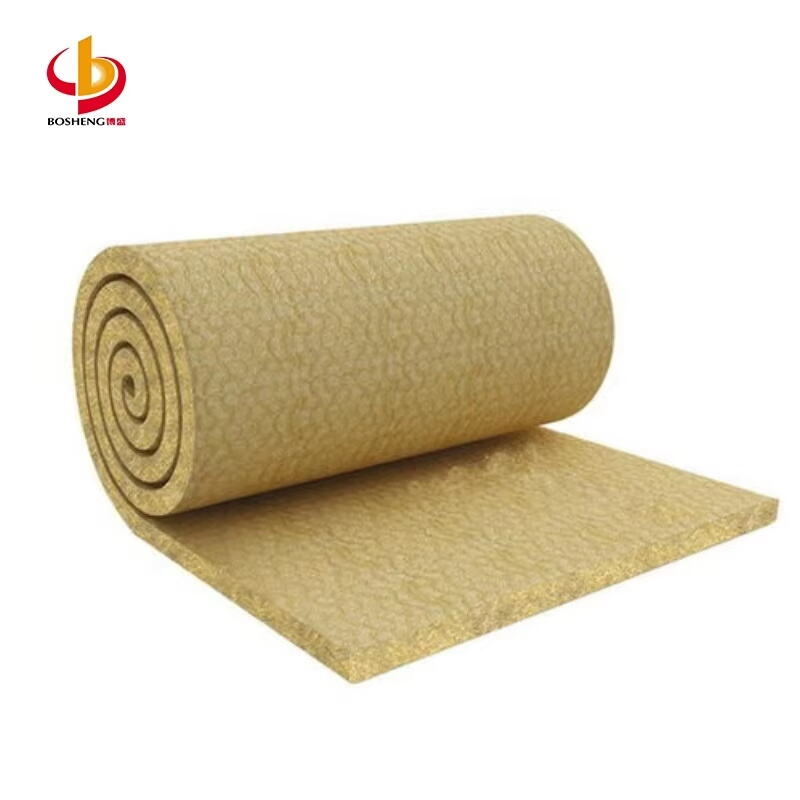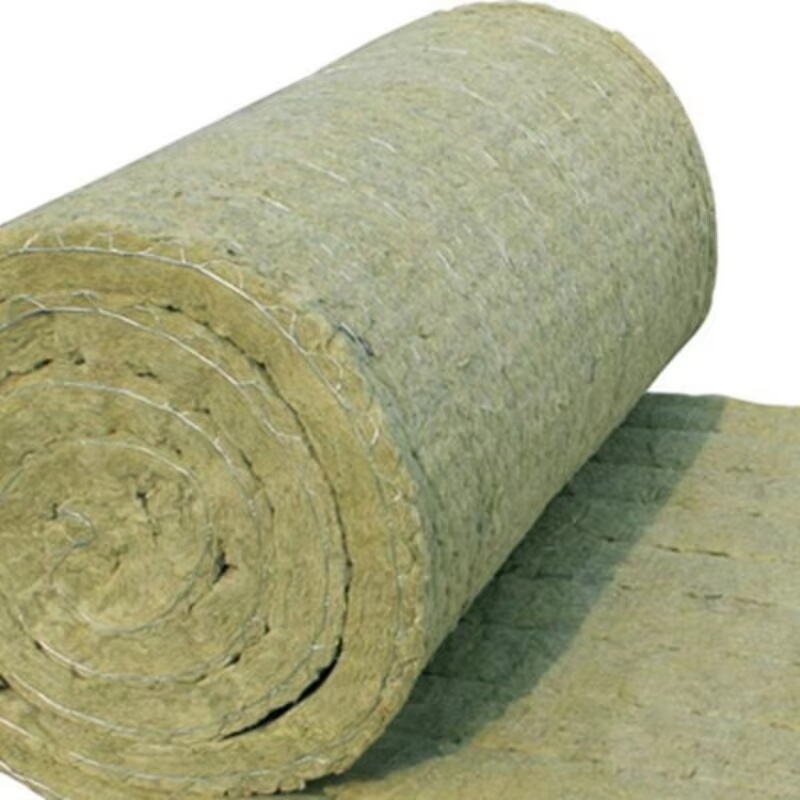Understanding the Versatility of Mineral Wool Insulation Solutions
Rock insulation blanket rolls have become increasingly essential in modern construction and industrial applications, offering superior thermal protection and fire resistance properties. These versatile insulation materials, manufactured from molten rock spun into fine fibers, provide exceptional performance across diverse environments. Their growing popularity stems from a unique combination of thermal efficiency, sound absorption, and sustainability features that make them indispensable in various sectors.
The adaptability of rock insulation blanket rolls has revolutionized how we approach thermal management in buildings and industrial facilities. Their comprehensive benefits extend beyond basic temperature control, offering solutions for fire safety, acoustic comfort, and energy efficiency. As we explore their most common applications, we'll discover why these insulation materials have become the preferred choice for professionals across multiple industries.

Commercial Building Applications
Office Complex Integration
In modern office buildings, rock insulation blanket rolls play a crucial role in creating comfortable and energy-efficient work environments. The installation of these materials in walls and ceiling cavities helps maintain consistent indoor temperatures while reducing HVAC system strain. Professional contractors often specify rock insulation blanket rolls for their excellent thermal performance and ease of installation in large commercial spaces.
The application extends to mechanical rooms and service areas, where these insulation materials protect essential building systems. Their non-combustible nature makes them particularly valuable in areas housing electrical equipment and HVAC components, providing an additional layer of fire safety while maintaining optimal operational temperatures.
Retail Space Implementation
Shopping centers and retail establishments benefit significantly from the acoustic properties of rock insulation blanket rolls. The materials effectively reduce noise transmission between stores and common areas, creating more pleasant shopping environments. Their installation in partition walls and ceiling systems helps maintain individual climate zones while contributing to the overall energy efficiency of the retail complex.
Store owners particularly appreciate how these insulation solutions help regulate temperatures in areas with varying occupancy levels and heat loads. From food courts to boutique shops, the consistent performance of rock insulation blanket rolls ensures comfortable conditions while minimizing energy costs.
Industrial Facility Applications
Manufacturing Plant Integration
Industrial facilities represent one of the most demanding environments for insulation materials, and rock insulation blanket rolls excel in these challenging conditions. In manufacturing plants, these materials are essential for insulating high-temperature equipment, steam pipes, and process vessels. Their ability to maintain performance under extreme temperatures makes them invaluable in maintaining safe and efficient operations.
The durability of rock insulation blanket rolls ensures long-term reliability in industrial settings, where replacement and maintenance costs can be significant. Their resistance to moisture and chemical exposure further enhances their suitability for manufacturing environments, providing consistent protection even in harsh conditions.
Power Generation Facilities
Power plants and energy generation facilities rely heavily on rock insulation blanket rolls to maintain operational efficiency and safety. These materials are crucial for insulating boilers, turbines, and extensive pipeline networks. Their high-temperature resistance and non-combustible properties make them essential for maintaining safe operating conditions while optimizing energy transfer.
The application of these insulation materials in power generation facilities extends to sound attenuation, helping to create safer working environments by reducing equipment noise levels. Their ease of maintenance and long service life make them a cost-effective solution for large-scale industrial operations.
Residential Construction Applications
Multi-Family Housing Solutions
In apartment buildings and condominiums, rock insulation blanket rolls serve multiple purposes, from thermal insulation to sound control between units. Their installation in party walls and floor/ceiling assemblies helps create quieter, more comfortable living spaces while meeting building code requirements for fire resistance and acoustic performance.
The material's moisture resistance and vapor permeability make it particularly suitable for residential applications where controlling humidity and preventing mold growth are essential. Property developers increasingly specify rock insulation blanket rolls for their comprehensive benefits and long-term value proposition.
Single-Family Home Implementation
Homeowners and builders recognize the advantages of rock insulation blanket rolls in creating energy-efficient and comfortable living environments. These materials are commonly installed in exterior walls, attics, and basement areas to provide superior thermal protection throughout the year. Their fire-resistant properties offer additional peace of mind for homeowners concerned about safety.
The installation process in residential settings is straightforward, allowing for efficient coverage of large areas while ensuring consistent performance. Homeowners particularly appreciate the material's contribution to reduced energy bills and improved indoor comfort levels across all seasons.
Specialized Facility Applications
Healthcare Environment Integration
Hospitals and medical facilities have unique requirements for building materials, and rock insulation blanket rolls meet these demanding standards. Their application in healthcare settings focuses on maintaining strict temperature control while supporting infection control measures through their inert and hygienic properties. The material's fire resistance adds an essential layer of safety in these critical environments.
Operating rooms and diagnostic imaging suites particularly benefit from the acoustic properties of these insulation materials, creating quieter spaces that enhance patient comfort and staff concentration. The thermal stability they provide is crucial for areas housing sensitive medical equipment.
Educational Institution Implementation
Schools and universities utilize rock insulation blanket rolls to create optimal learning environments. The materials' sound-absorbing properties help reduce noise transmission between classrooms, while their thermal performance ensures comfortable temperatures throughout the academic year. Their durability makes them a cost-effective choice for educational facilities with limited maintenance budgets.
Installation in gymnasium walls and mechanical spaces helps manage both temperature and acoustics in these high-activity areas. The non-combustible nature of the materials adds an important safety feature in educational settings where fire protection is paramount.
Frequently Asked Questions
What makes rock insulation blanket rolls different from other insulation materials?
Rock insulation blanket rolls offer a unique combination of thermal efficiency, fire resistance, and acoustic performance. Their mineral wool composition provides superior durability and moisture resistance compared to traditional insulation materials, while their fiber structure enables excellent sound absorption and temperature control capabilities.
How long do rock insulation blanket rolls typically last once installed?
When properly installed and maintained, rock insulation blanket rolls can maintain their performance characteristics for 50 years or more. Their inorganic composition makes them resistant to deterioration, and they retain their shape and thermal properties even under challenging environmental conditions.
Are rock insulation blanket rolls environmentally friendly?
Yes, these materials are considered environmentally sustainable. They are manufactured using abundant natural resources, often incorporate recycled content, and are fully recyclable at the end of their life cycle. Their energy-saving properties also contribute to reduced carbon emissions throughout their service life.




